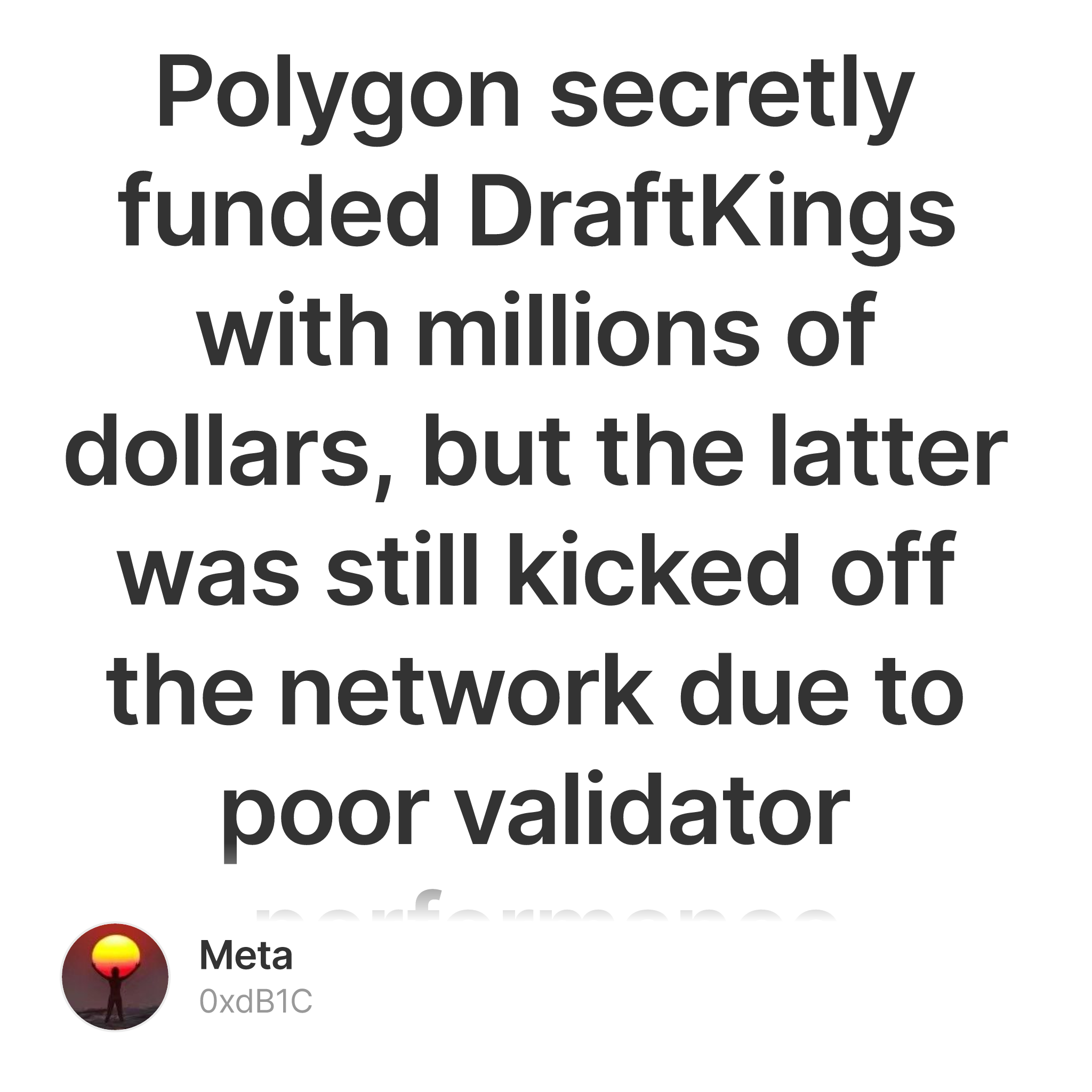In early 2022, Polygon Labs announced that sports betting company DraftKings would begin running one of its network validators; what Polygon did not disclose at the time was that it provided millions of dollars worth of MATIC tokens to DraftKings. On-chain data shows that DraftKings received millions of dollars in cryptocurrency directly from Polygon at the start of the “Strategic Blockchain Protocol” in October 2021. DraftKings subsequently made millions more through a special staking relationship that few other validators in the Polygon network enjoyed, and neither company disclosed these financial relationships. Representatives for Polygon and DraftKings declined to discuss financing for validator transactions, citing confidentiality agreements. As one Polygon executive put it, DraftKings is not an “equal community member” among the Polygon network’s 100 validators. Blockchain data shows it was paid huge sums to “play an active role in blockchain governance,” but then failed to deliver on its promises.
DraftKings’ validator differs from other validators in that it charges 100% commission, meaning its dozen or so small delegators are not rewarded with any MATIC tokens. The DraftKings validator has grown to become one of the largest validators in the Polygon network, its largest delegator is Polygon, and the project has delegated 60 million MATIC tokens to help DraftKings earn more staking rewards. For much of last year, DraftKings’ validators had 65.5 million MATIC tokens staked, 91% of which were delegated to it by Polygon. Most of the rest is DraftKings' own MATIC: 3 million MATIC comes from staking rewards, and 2.5 million MATIC comes from staking at the beginning of the relationship in March 2022. At the time of the partnership announcement, Polygon had reserved 10 million MATIC for DraftKings validators; by the end of the partnership, the total had grown to 60 million MATIC. From November 2022 to the validator deactivation in mid-October 2023, DraftKings withdrew a total of 3.2 million MATIC, which is worth just over $2 million at current prices. During this time, it has accumulated more personal rewards than any other validator. Data from validation.info indicates that without these 60 million MATIC tokens, DraftKings may only receive 4% of its revenue. DraftKings’ profitability comes at the expense of every other staker in the Polygon ecosystem. The network only issues a limited number of MATIC rewards to stakers each year. At least 80% of DraftKings’ Polygon delegated tokens come directly from the foundation, meaning they have not been previously staked. These newly delegated tokens dilute the rewards available to others.
It's unclear why DraftKings allowed its Polygon validator to fall into disrepair. But clues on the chain indicate that the two companies’ infrastructure relationship began to shift a year ago. According to data website validator.info, DraftKings has been staking new MATIC rewards almost every day to achieve compound returns; the last time it did so was on November 7, 2022 (when FTX was thundering); since then, DraftKings only chooses to withdraw rewards. DraftKings' verification process lasted for nearly a year until September of this year, when it began to perform poorly in its core job of checking the chain. It received the first blow, then the second; in early October, it received an "ultimatum." The self-regulatory network will soon shut down DraftKings for failing to meet its requirements. On October 19, Polygon kicked DraftKings out of the validator program and reallocated its slot to crypto exchange Upbit. On November 9, Polygon transferred 60 million delegated MATIC tokens from DraftKings’ defunct validator to another validator with zero fees.
